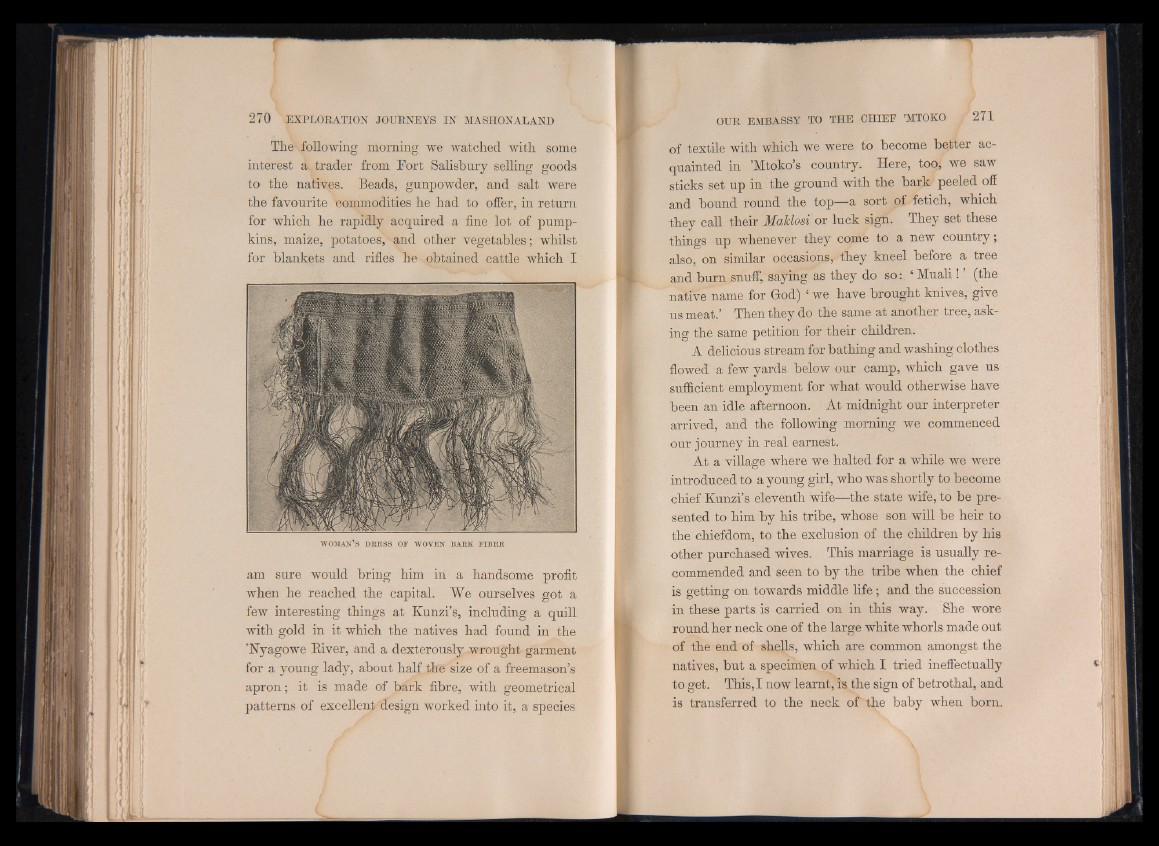
The following morning we watched with some
interest a trader from Fort Salisbury selling goods
to the natives. Beads, gunpowder, and salt were
the favourite commodities he had to offer, in return
for which he rapidly acquired a fine lot of pumpkins,
maize, potatoes, and other vegetables; whilst
for blankets and rifles he obtained cattle which I
w o m a n ’s d r e s s o f w o v e n b a r k f i b r e
am sure would bring him in a handsome profit
when he reached the capital. We ourselves got a
few interesting things at Kunzi’s, including a quill
with gold in it which the natives had found in the
’Nyagowe Kiver, and a dexterously wrought garment
for a young lady, about half the size of a freemason’s
apron ; it is made of bark fibre, with geometrical
patterns of excellent design worked into it, a species
of textile with which we were to become better acquainted
in ’Mtoko’s country. Here, too, we saw
sticks set up in the ground with the bark peeled off
and bound round the top—a sort of fetich, which
they call their MaUosi or luck sign. They set these
things up whenever they come to a new country;
also, on similar occasions, they kneel before a tree
and burn snuff, saying as they do so: ‘ Muali! ’ (the
native name for God) ‘we have brought knives, give
us meat.’ Then they do the same at another tree, asking
the same petition for their children.
A delicious stream for bathing and washing clothes
flowed a few yards below our camp, which gave us
sufficient employment for what would otherwise have
been an idle afternoon. At midnight our interpreter
arrived, and the following morning we commenced
our journey in real earnest.
At a village where we halted for a while we were
introduced to a young girl, who was shortly to become
chief Kunzi’s eleventh wife—the state wife, to be presented
to him by his tribe, whose son will be heir to
the chiefdom, to the exclusion of the children by his
other purchased wives. This marriage is usually recommended
and seen to by the tribe when the chief
is getting on towards middle fife; and the succession
in these parts is carried on in this way. She wore
round her neck one of the large white whorls made out
of the end of shells, which are common amongst the
natives, but a specimen of which I tried ineffectually
to get. This, I now learnt, is the sign of betrothal, and
is transferred to the neck of the baby when born.